On Wednesday, Dec. 11, as part of the MetroCommon 2050 Speaker Series, MAPC hosted its biennial Clean Energy Forum at District Hall. The day’s theme was climate equity and MAPC staff presented on their work advancing climate equity through research and net zero planning. The morning had a fully packed agenda, with three keynote speakers who opened with their perspectives on climate justice and equity, the launch of two original research products, an interactive art installation on climate perspectives, and six panelists who presented on creating access to quality jobs on the pathway to net zero.
Voices on Climate Justice
The forum spotlighted three dynamic keynote speakers whose work and advocacy focuses on bringing voices most impacted by the harsh effects of climate change to the forefront of the clean energy and climate conversation. Attendees heard from Varshini Prakash, Executive Director and Co-Founder of Sunrise, a leading movement for young Americans on climate change; Sandhya Murali, Co-Founder and COO of Solstice, an award-winning social enterprise dedicated to expanding access to clean energy to all Americans; and Nicole Hernandez Hammer, Project Director for the Clean Energy States Alliance (CESA), where she works on low- and moderate-income solar.
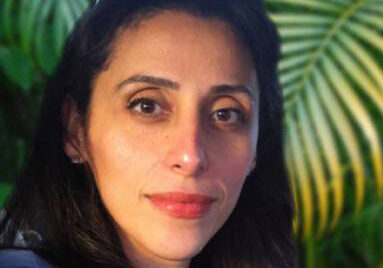


Each speaker underscored the sense of urgency around advancing climate justice. Their remarks focused on communities that have been disproportionately impacted by the effects of climate change in their communities and approaches to helping them to access solutions. Prakash left attendees with a moving request to commit to taking on the most leadership that they possibly can undertake to drive forward equitable solutions in their communities.
MAPC introduced its work on a Net Zero Planning Framework for Equity and new research on mapping social vulnerability to climate change in Greater Boston. Clean Energy Coordinator, Nicole Sanches, highlighted that it is crucial to include equity when advancing a Net Zero Plan in order to prioritize the voices of groups who have been unreasonably impacted.
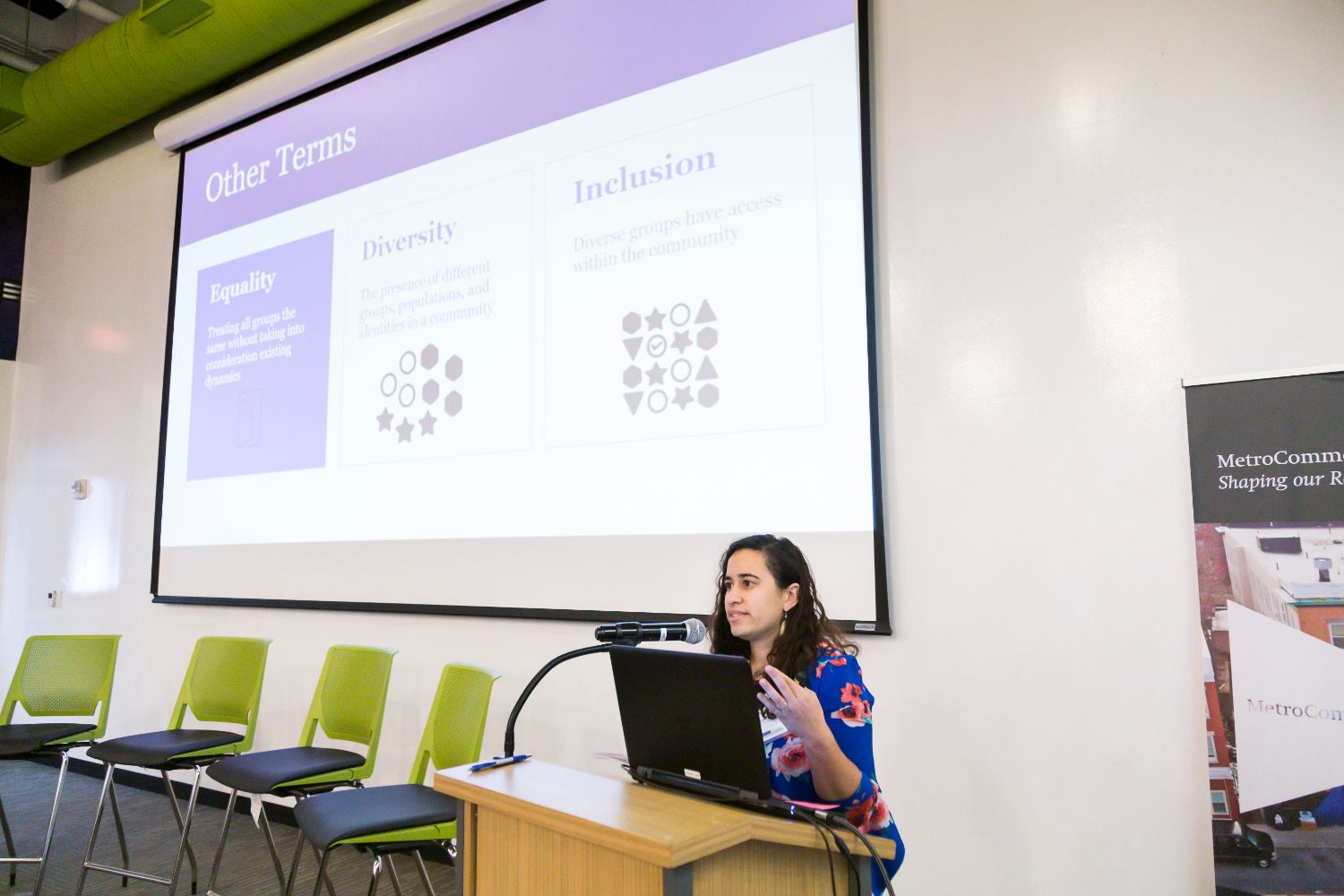
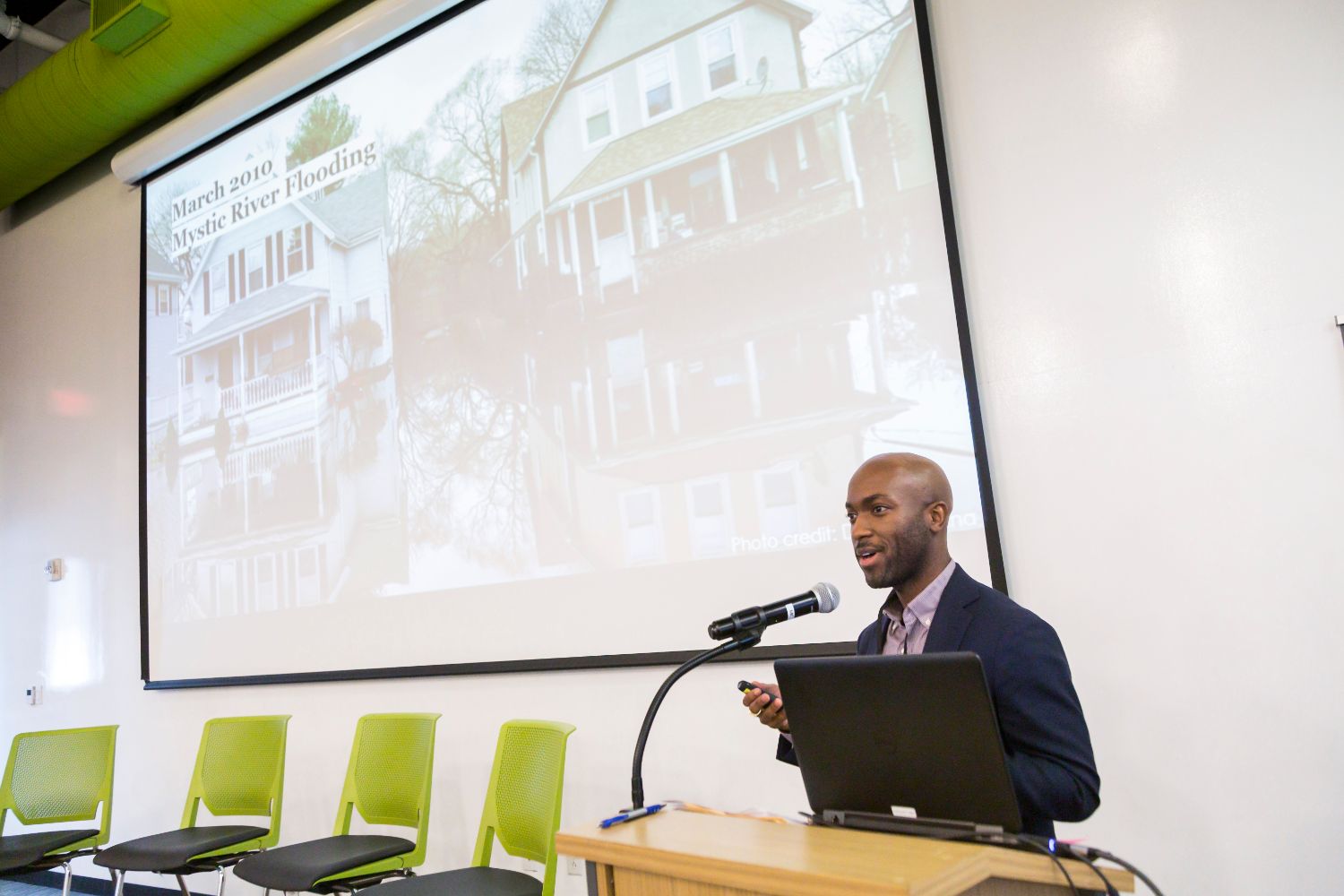
Research Analyst II Seleeke Flingai, showcased new analysis completed by MAPC’s Data Services Department on a people-centered approach to understanding community vulnerability to the impacts of climate change.
Check out MAPC’s original research on social vulnerability here. Stay tuned – MAPC’s Net Zero Framework for Equity will be available on our Net Zero Planning page in January 2020.
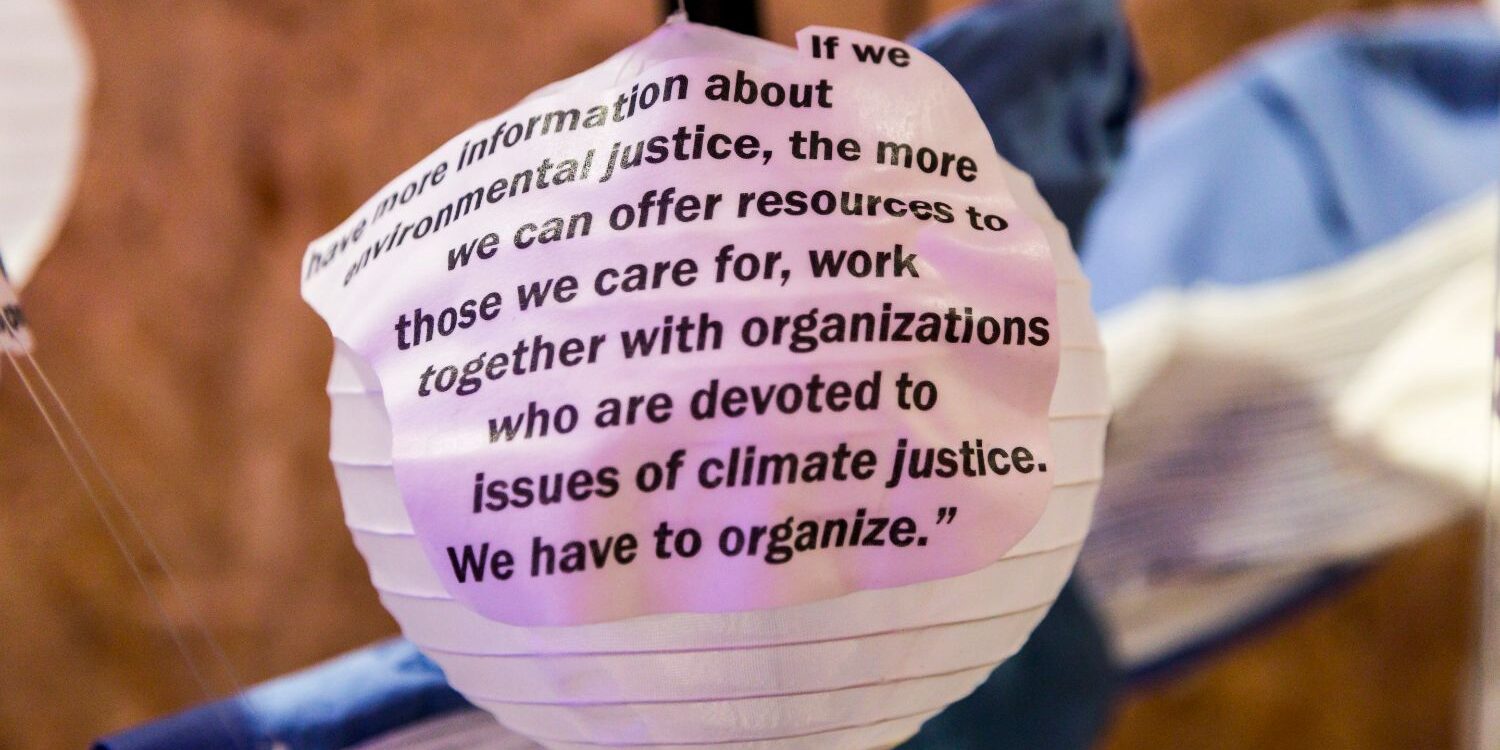
Climate Perspectives Art Exhibition at the Forum
The forum included Schools of Thought, an art installation by MAPC’s artists-in-residence based on MAPC’s Climate Perspectives report on the impacts of climate change on workers in the construction, farming, home health care, and fishing industries. Videos and sculpture helped communicate the findings of a series of focus groups on current and future impacts of climate change and emerging resilience strategies. The videos highlighted two people effected by climate change in Massachusetts: fisherman Jamie Bassett and farmer Dave Dumaresq.
Seizing Opportunity in Our Net Zero Future
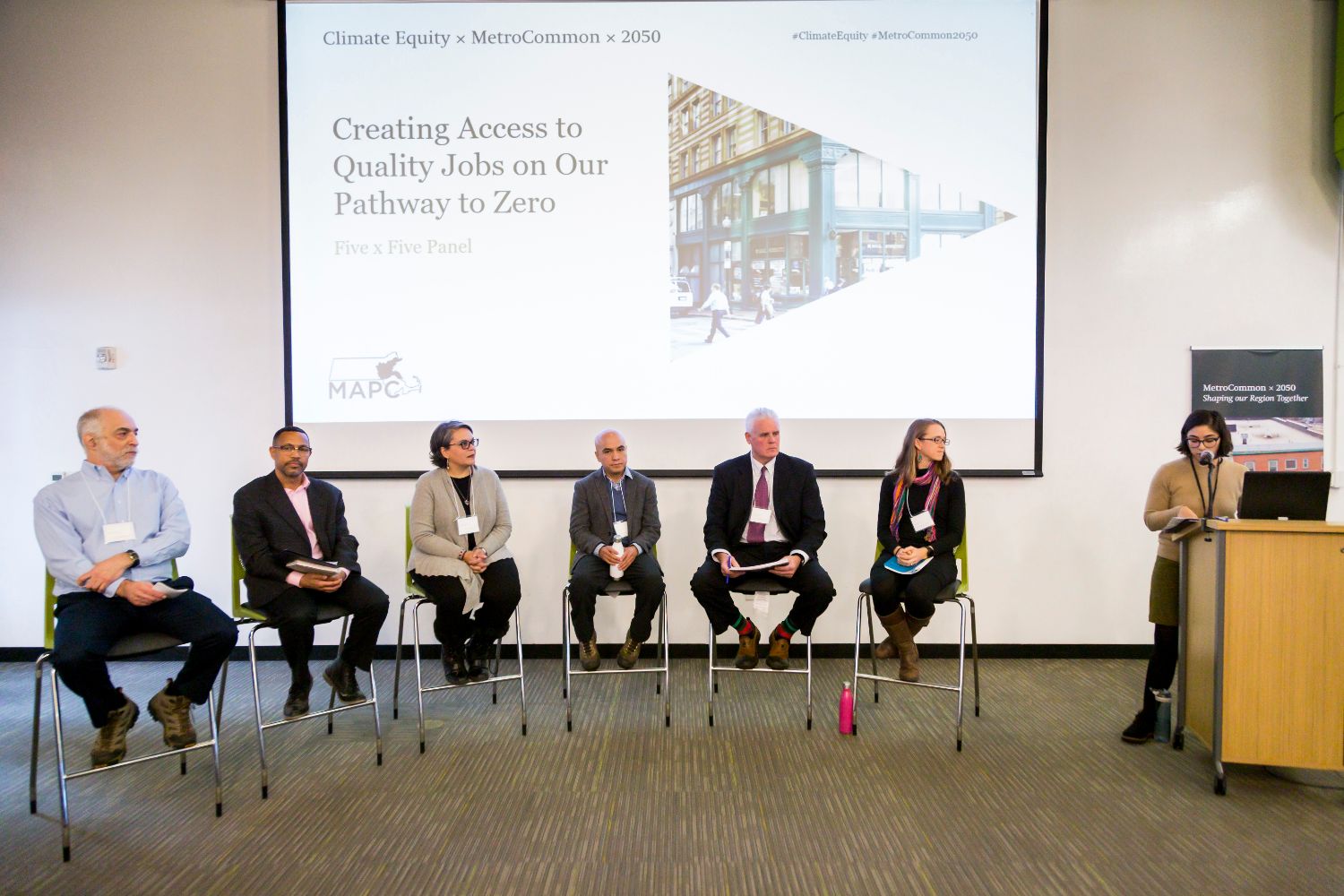
The final panelists - Rouwenna Altemose, Co-Founder of All in Energy; Steve Sullivan, Director of Workforce Development at Associated Builders and Contractors Massachusetts Chapter; Lesly Melendez, Deputy Director of Groundwork Lawrence; Danilo Morales, Eco-Innovation Manger at Codman Square NDC; and Daryl Wright from Emerald Cities Collaborative and Adam Parker from Rocky Mountain Institute representing Boston Contractor Academy – spoke on developing a diverse workforce to undertake the climate and clean energy transformation. Each panelist highlighted best practices that enabled greater diversity in their workforces.
What's Next?
Get involved with our MetroCommon 2050 process! In Phase II, we are focused on understanding the challenges and opportunities that exist within each action area of the plan to inform the development of policy recommendations. Check back for more events and opportunities to engage.
Engage now with MAPC staff on equity-centered projects! We are excited to continue evolving our work and developing more resources to support the integration of equity in climate and clean energy planning and program implementation. Stay tuned! We would also love to hear from you about how you intend to center your climate mitigation and preparedness work on advancing equity across your community. Email [email protected] to start the conversation.
What did People Think?
Check out attendees' ideas for climate equity in the region:
